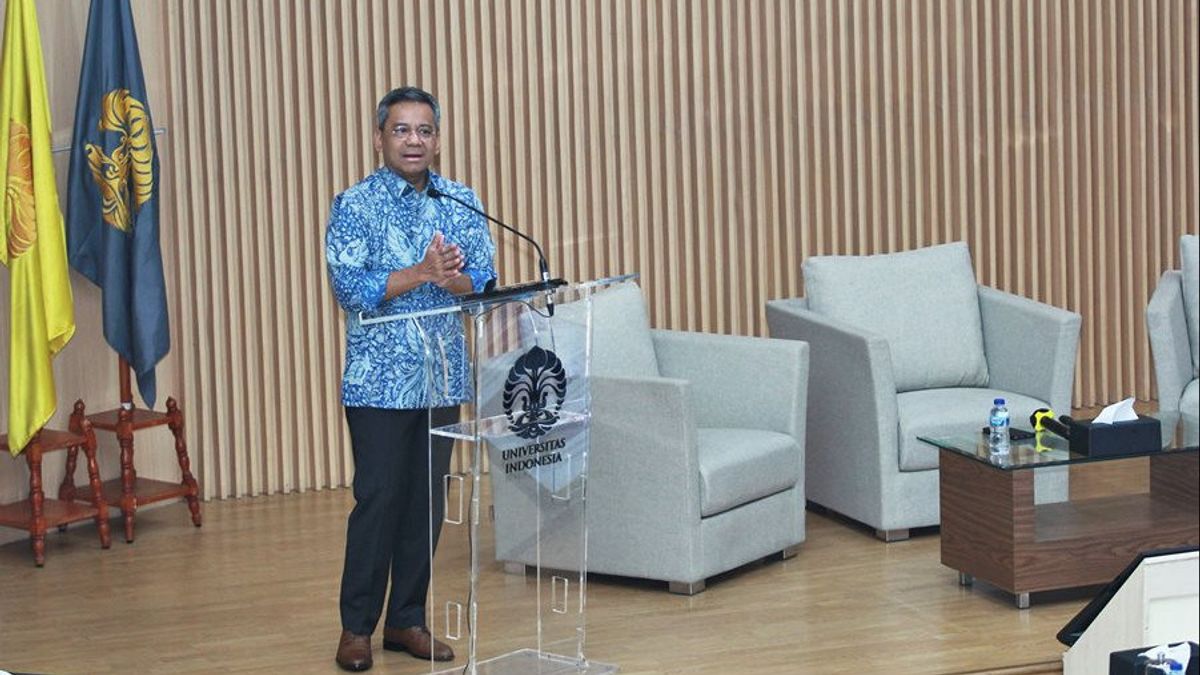JAKARTA - Deputy Minister of Finance (Wamenkeu) Suahasil Nazara said that the COVID-19 pandemic has provided very valuable lessons for state financial instruments.
According to him, for the past three years fiscal has acted as a shock absorber that protects the public from various shocks.
"After working hard from 2022, the state budget must be restored to create fiscal resilience," he said in a press statement quoted on Thursday, November 24.
According to Suahasil, the purpose of restructuring the state budget is so that the state's financial instruments can always be prepared as important tools to deal with crises.
What is it that creates fiscal resilience? Take care of the health of the state budget. The state budget must still maintain its health because the state budget must still be a shock absorber. How to maintain the state budget shock absorber? The deficit is returned to how it used to be, back to below 3 percent," he said.
Suahasil added, another lesson from the pandemic is a challenging situation and suddenly like that time must be handled properly in the future.
Yesterday the deficit's state budget jumped to 4 percent and even 6 percent. This effort also supports us to continue to pursue economic growth which is becoming very, very important," he stressed.
Furthermore, Sri Mulyani's representative also conveyed that the government is optimizing the momentum of the pandemic to carry out structural reforms, fiscal reforms, and look for new sources of growth.
He said, in terms of policy reform, new fundamental regulations have been issued, such as the Job Creation Act, the Law on Harmonization of Tax Regulations (UU HPP), the Law on Financial Relations between the Center and Regional Affairs (UU HKPD).
In addition, the government also continues and strengthens various kinds of reforms in budgeting, financing, and discusses the Draft Law on Strengthening the Financial Sector with the DPR
"These are new foundations, and these foundations that we are trying to emerge but at the same time we are still looking for new sources of growth after the pandemic," he added.
Suahasil explained that there are five crucial points in Indonesia's efforts to encourage new sources of growth after the pandemic, namely the use of domestic products, downstreaming of the SDA industry with high added value. Then, the use of EBT and the transition of a green economy, the use of the digital economy, and financial sector reforms.
The English, Chinese, Japanese, Arabic, and French versions are automatically generated by the AI. So there may still be inaccuracies in translating, please always see Indonesian as our main language. (system supported by DigitalSiber.id)











